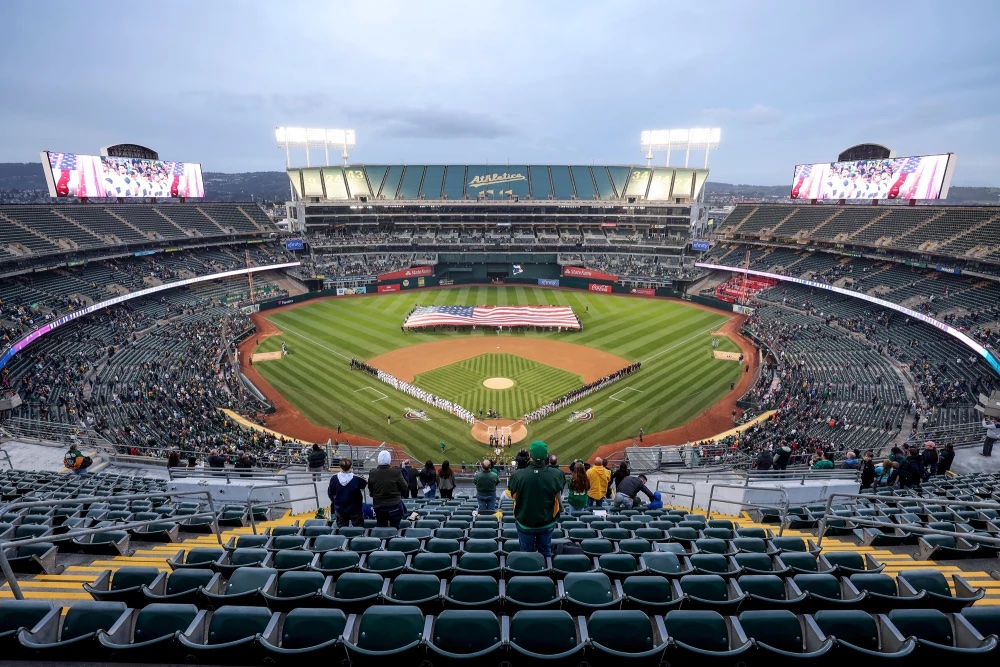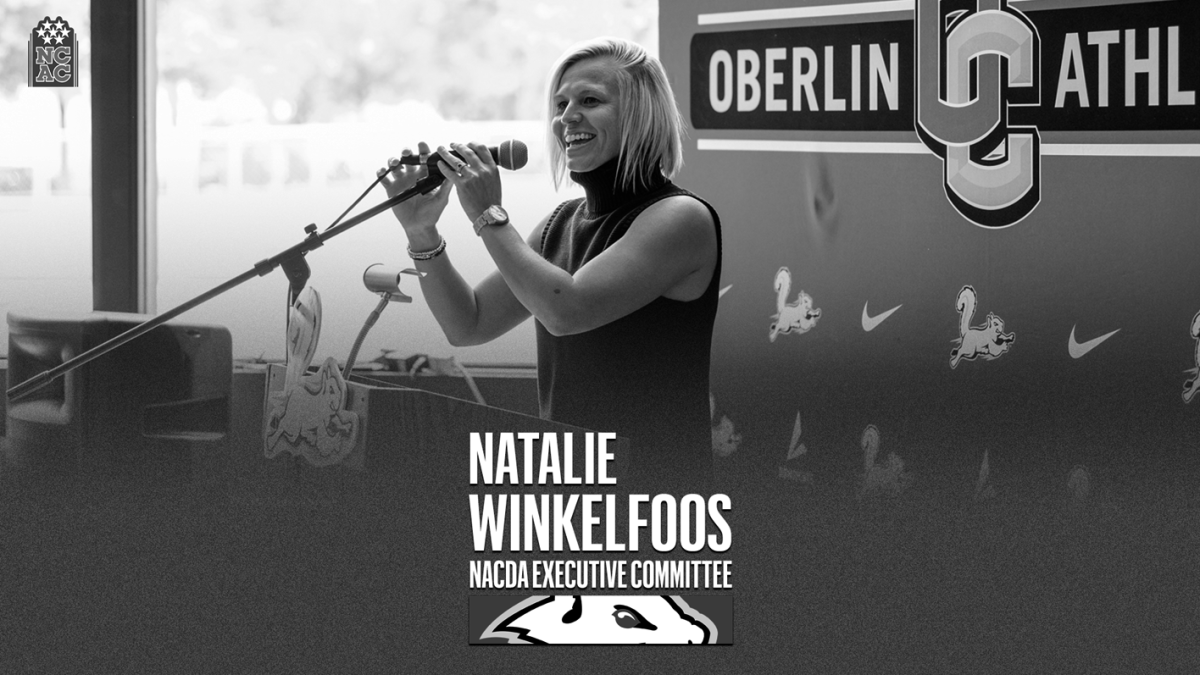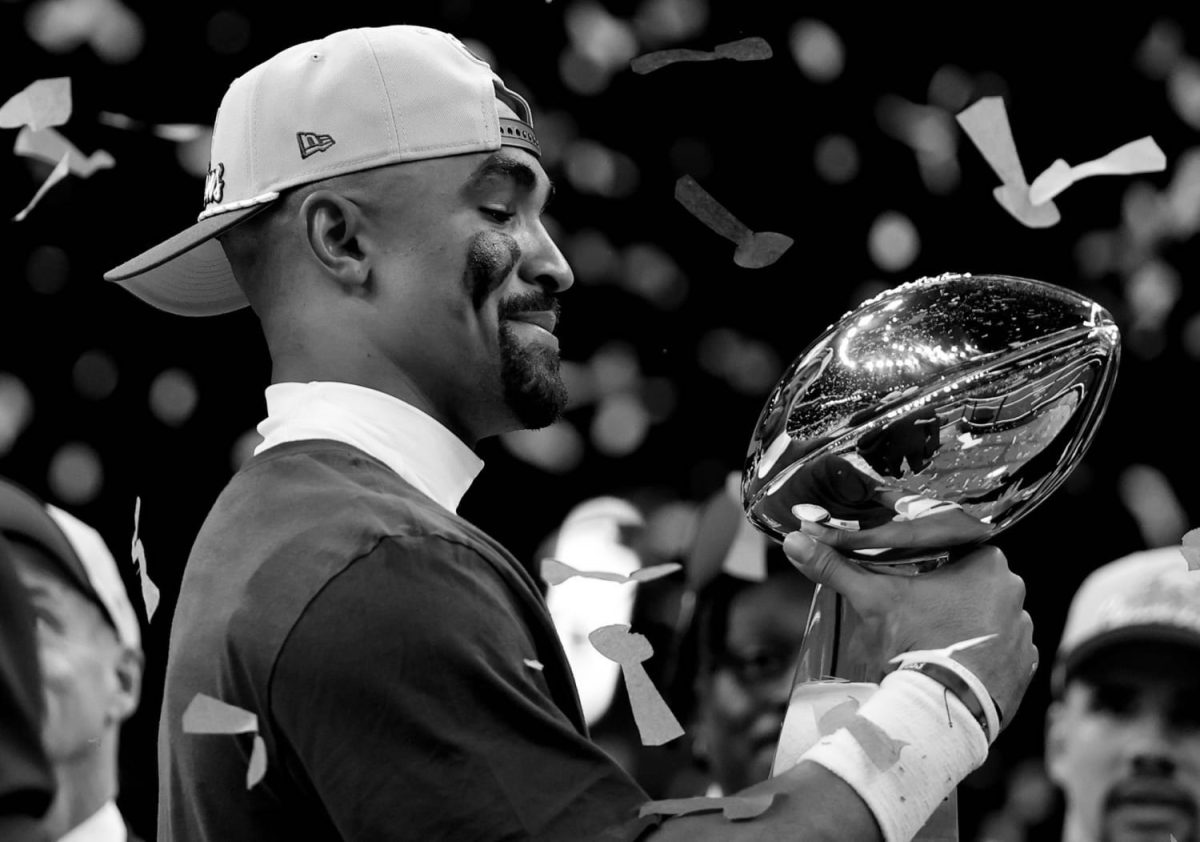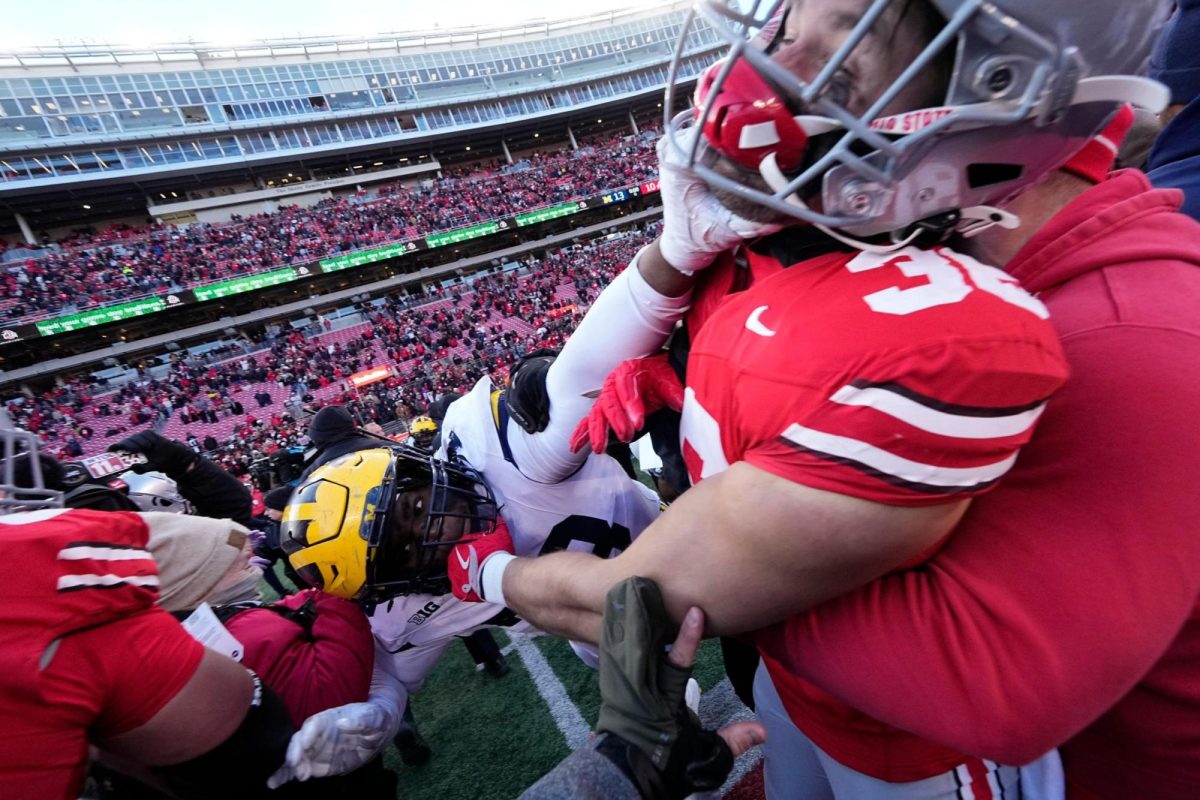Fifty-seven years in Oakland, four World Series Championships, six pennants, 17 division titles, and seven Hall of Fame players — the Athletics did not just play in Oakland, they became an integral part of the city.
On Sept. 26, the now former Oakland Athletics played their last game at the Oakland-Alameda County Coliseum, an iconic venue for residents of Oakland and fans of the team. Constructed by the city in 1966, the Coliseum was built as a baseball and football stadium, with the hopes of luring a franchise to come play in Oakland.
In 1966, the NFL’s Oakland Raiders broke ground on the stadium, and in 1968, the MLB’s Oakland Athletics played their first season at the ballpark. In 2020, the Raiders left for a new stadium in Las Vegas, and for the first time, the Athletics had a home ballpark all to themselves. However, the Athletics’ lease on the Coliseum was up in 2024, and due to the deteriorating nature of the ballpark, it was deemed best that the team work with the city to construct a new home.
In 2005, a businessman named John Fisher purchased the Athletics. Son of The Gap founders Donald and Doris Fisher, he was initially behind the idea of financing a new stadium.
In 2018, ownership led by Fisher settled on Howard Terminal — an aging, 55-acre port terminal used for cargo container storage — to be the new home of the Oakland Athletics. Facility officials were willing to work with ownership and the city to create a long-standing new home for the Athletics. Plans were drawn up for a 35,000 seat ballpark located on the waterfront that would include 6 million square feet of commercial buildings and residential buildings. The project was estimated to cost $12 billion.
The City of Oakland has seen two teams leave in the last decade. Along with the Raiders, the Golden State Warriors departed in 2019 for San Francisco. City officials were determined to do whatever was necessary to keep a franchise in Oakland.
“It wasn’t just the city of Oakland, it was a whole California effort,” Oakland Mayor Sheng Thao said in a July 2023 interview regarding the drawn-out process to keep the Athletics. “There were so many different hurdles that we actually lifted. You go through all that [and] you think that you’re going to have an honest partner to work with.”
The ownership group insisted on a multi-billion dollar location that included real-estate development, retail space, and a ballpark.
“The hangup was focused on the 3,000 housing units and millions of square feet of retail and office space in a massive $12 billion project the A’s also wanted,” Oakland resident and longtime city government observer Michael Keough said.
In 2021, the Oakland City Council voted for a term sheet, and negotiations began. However, they stalled a year later when the Council had difficulty gathering money for the infrastructure without putting taxpayers at risk. Fisher and ownership could have invested the money themselves, but they declined and the project fell through.
The Athletics handed out their team’s largest contract in 2004: six years and $66 million for third baseman Eric Chavez. The following year, Fisher bought the team, and 20 years later, that remains the largest contract the Athletics have given out.
In 2024, the Athletics’ payroll was $63.4 million. The average MLB payroll was $167 million, with the Mets leading the way at over $317 million — nearly four times that of the Athletics.
Fisher released a statement to A’s fans Sept. 23, hours before the team played their last series in Oakland.
“I can tell you this from the heart: we tried,” Fisher wrote. “Staying in Oakland was our goal, it was our mission, and we failed to achieve it. And for that I am genuinely sorry.”
However, the eye test tells a different story than Fisher portrays.
“The issue is, [Fisher] wasn’t willing to invest,” Casey Pratt, a spokesperson for Mayor Thao, said. “He never meaningfully invested in his roster or his stadium plans while his franchise valuation shot up a billion dollars. That’s why he fell short of his stated goals both on and off the field.”
The Athletics have made three playoff appearances in the last decade, not making it past the Divisional Series in that span. This season they finished 69–93, 17 games back of a playoff spot.
Fans of the Athletics are not naive to Fisher’s antics. Since the 2022 season, the Athletics have had the lowest attendance in the MLB. This past season, the Athletics’ attendance averaged 11,528. Another small market team, the Cleveland Guardians, had an average attendance of 26,028.
This team will play its next three seasons at Sutter Health Park, home of the Triple-A Sacramento River Cats, with an option for a fourth season. During this time frame, construction will begin on a nine-acre stadium at the new permanent home of the Athletics, Las Vegas.
The ballpark will seat 33,000 and is located on the Las Vegas strip at the former site of the Tropicana. The Athletics plans to spend $350 million in public money, finance $300 million, and get the other $850 million from private equity. The $1.5 billion venture is expected to be ready in 2028, barring any construction or legal delays. The Tropicana is expected to be demolished Oct. 9, and construction is scheduled to begin in the second quarter of 2025.
The Athletics’ last game of the season was completely sold out. Frequent “sell the team” chants could be heard echoing through the Coliseum from the exuberant crowd. Fans showed up in droves to show their support for a franchise much maligned in recent years. Fisher did not invest in the team, and in doing so, did not invest in its fans.
Since buying the Athletics in 2005, Fisher has continuously declined to invest in the Coliseum in favor of finding a new home for the franchise. Proposals for moves to San Jose, Fremont, Santa Clara, and two different Oakland sites have all come and gone. In this two-decade saga, Fisher has been the one constant. Who’s to say if when the time comes to invest in the Las Vegas site — and it will come — Fisher will finally provide funding. If not, the endless “sell the team” chants will only grow louder.
The Athletics are now without a home for the next three, possibly four years. If plans in Las Vegas fall through, they will have no place to play for the foreseeable future; they can no longer run back to the Coliseum.
Next season, the Oakland Athletics will just be the Athletics. Rather than playing for a city whose fans encapsulate what it means to be an A, the Athletics will have no hometown fans and no hometown to play for.












